DashFight’s Elizbar Ramazashvili writes for Esports Insider to overview the history of Red Bull in esports and highlight the important place the brand occupies in the Fighting Game Community (FGC).
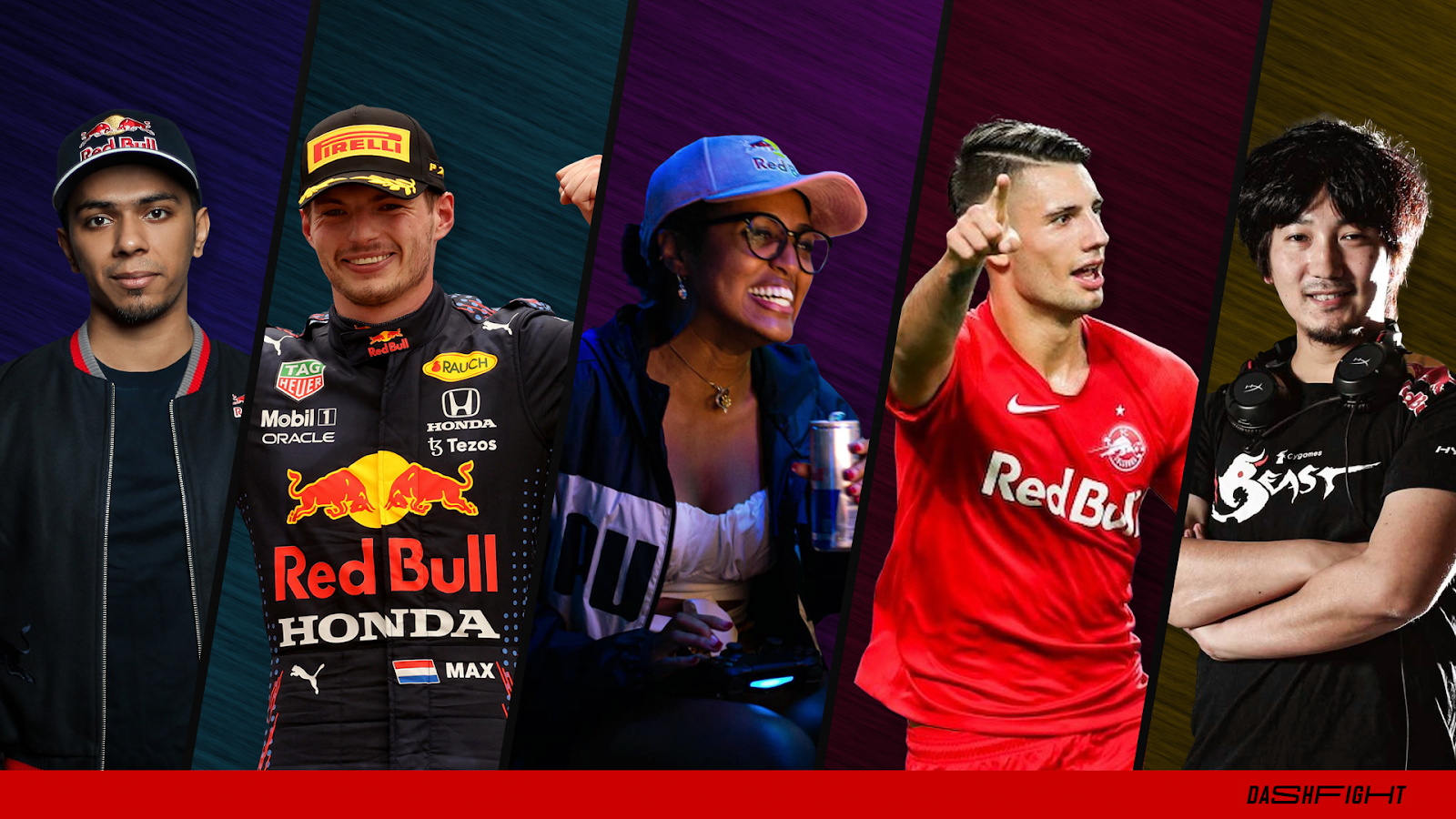
Red Bull is one of the biggest brand names on this planet. It is the energy drink equivalent of Coca-Cola, Apple, or Mercedes-Benz. In many parts of the world, the Red Bull name is synonymous with energy drinks.
In 1984, Thai investor Chaleo Yoovidhya and Austrian businessman Dietrich Mateschitz founded Red Bull GmbH, and three years later, they launched the company globally in Austria. Soon after, in 1989, it sponsored the Formula One driver Gerhard Berger. Years later, Red Bull established its own F1 team – Red Bull Racing.
It was a considerable risk and a significant investment, but it paid off – the team won several world championship titles in the early 2010s. Even now, it’s among the best teams on the grid, with Max Verstappen, one of the most talented drivers of this generation, winning the World Championship for the team.
While Formula One has always been an integral part of the Red Bull brand, the company built its legacy in many different endeavors, one of the most significant being extreme sports. Red Bull sponsored athletes in motocross, BMX, rallycross, windsurfing, and others, and even started hosting its own events. Today, Red Bull is tightly associated with extreme youth sports culture, having brought more spotlight to these more niche and obscure sports disciplines.
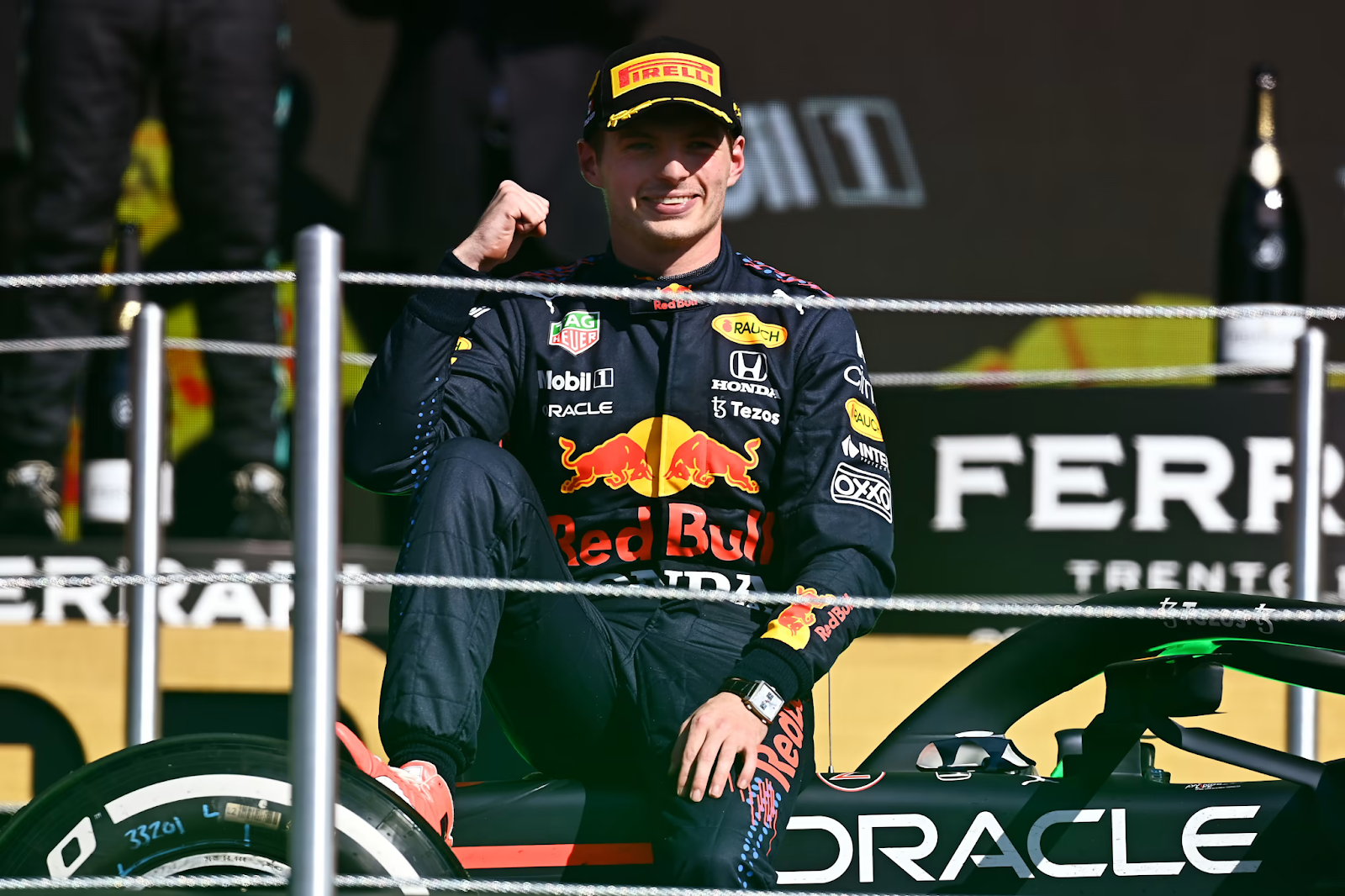
RELATED: The growth of the FGC – Watering the grassroots
In recent decades, Red Bull also pivoted towards more traditional sports. It sponsors athletes in tennis, basketball, skiing, baseball, and others. Red Bull even has top-tier football teams in Austria, Germany, USA, and Brazil. In addition to this, Red Bull also sponsors individual players as well.
Back in the mid-00s, unlike many at the time, Red Bull recognised the potential of gaming and esports and started investing in this category. Its first signing was David ”Walshy” Walsh, a professional Halo player.
Since then, Red Bull’s presence in esports has grown considerably. The company sponsored players in different disciplines, including Soren ”Bjergsen” Bjerg in League of Legends and Ryan Pessoa in FIFA. It also sponsored various esports organisations, most notably Dota 2’s OG, two-time winners of The International. OG even integrated the Red Bull brand into its renewed organisation logo.
In 2017, the company tried to get into one of the most prestigious League of Legends championships – European LCS. The team, aptly named Red Bulls, had a serious mix of veteran talent in Raymond “kaSing” Tsang, and up-and-coming superstar Carl Felix “MagiFelix” Boström. The team made it into the decider playoffs, but in the end, it was not meant to be.
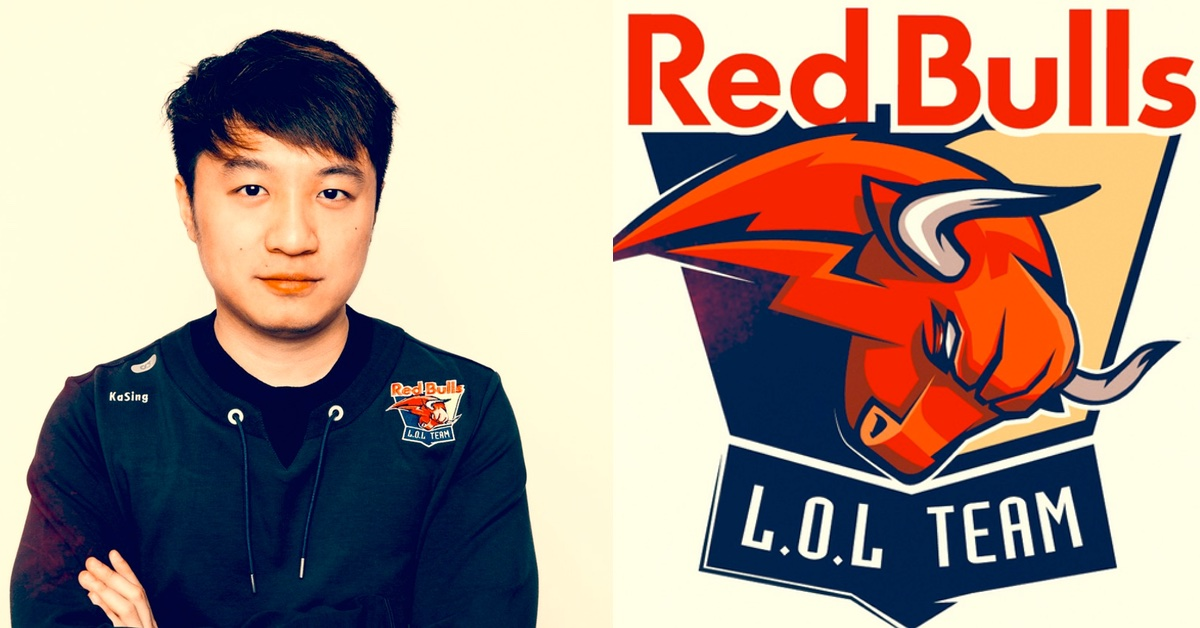
However, the biggest influence Red Bull has had on an esport discipline is arguably on fighting games. Red Bull Kumite is one of the most prestigious events on the FGC calendar, generating untold amounts of hype. And even aside from this, Red Bull has hosted a plethora of memorable tournaments over the years: Red Bull Home Ground, Red Bull Gladiators, Red Bull Conquest, Red Bull Gladiators, and many more.
Not all of them were always top-tier – the organisers at Red Bull eSports understand the essence of the FGC. They know that everything in fighting games begins at the grassroots level. This is precisely why many of their events are local-level, held across different countries in different games.
Ever since Red Bull entered the competitive gaming scene, its esports department never stopped the individual sponsorships it is known for. If you look at the official gaming athlete page on the website, you’ll surely notice that there are quite a lot of them signed under the company banner. However, if you consider how many different esports categories and disciplines are out there, the realisation comes that there are only a handful per game, and only a dozen of them represent the FGC as a whole.
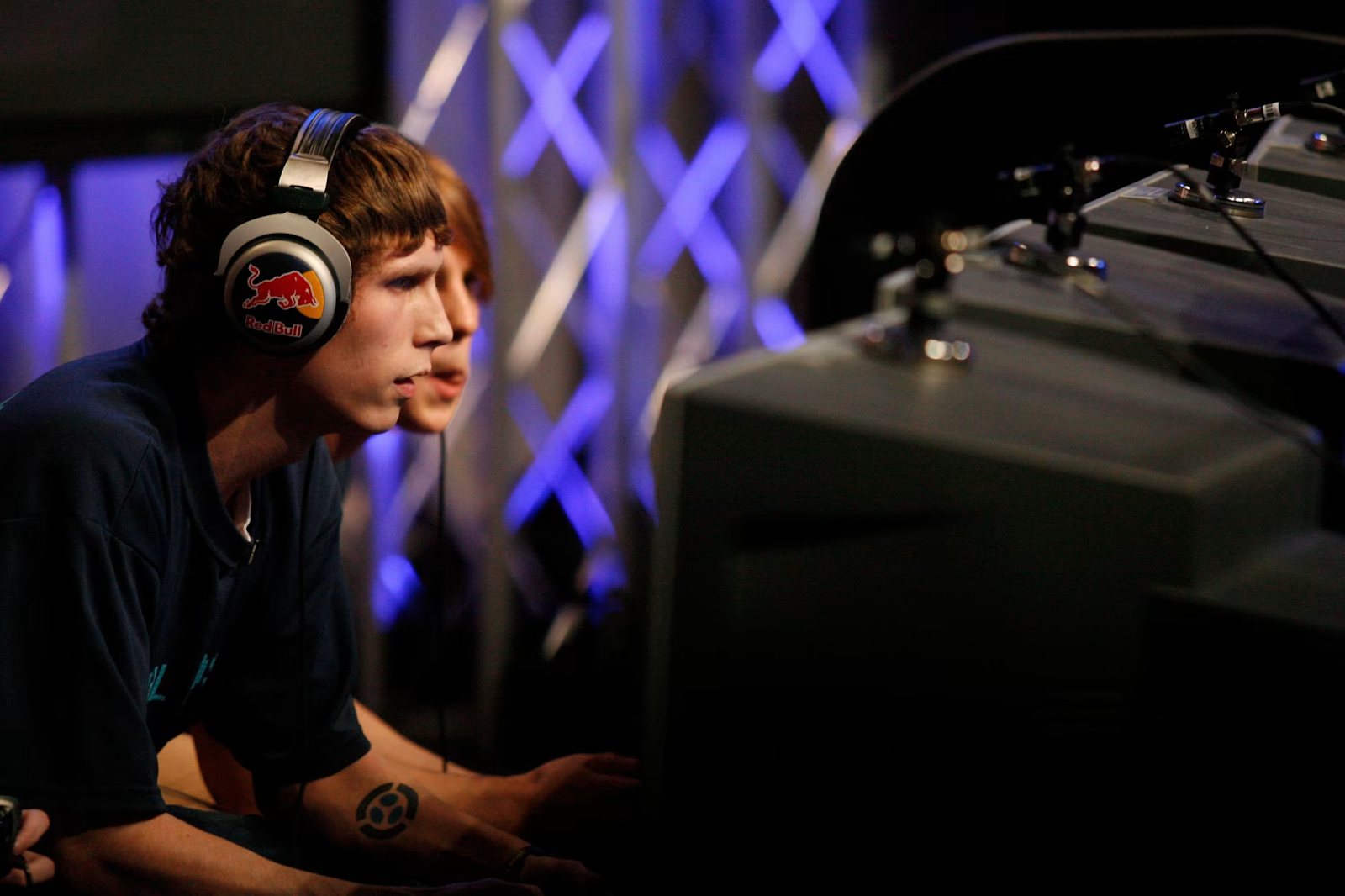
RELATED: Can fighting games become a mainstream esport without abandoning grassroots?
It has never been public knowledge just what you need to do to become a Red Bull athlete. Its esports program doesn’t function like your regular team. All the competitors are free to — and many do — be a part of a traditional organisation while also being under the banner of RB. Still, just the mere fact of being a Red Bull athlete is a major boost to any player’s name recognition and prestige.
For Red Bull themselves, this is most likely a two-way street. Undoubtedly, purely in the financial sense, this is an advertisement sponsorship so typical for traditional sports. You get paid and receive some additional benefits for representing the brand you signed with.
And represent they do – if you look at any official public appearance of any Red Bull athlete, they always prominently feature the raging crimson bull on one or more parts of their apparel. But it’s not just that simple. If pure exposure was the sole goal for the Austrian company, it would have plastered its name all over, sponsoring as many competitors as possible to reach the widest possible audience. Instead, Red Bull went in a different direction – introducing scarcity to increase prestige. Only so many players can become Red Bull athletes, and when someone does, the world notices.
There’s no easy way to get picked up by the Red Bull esports team, and most of the time, just having stellar tournament results isn’t enough (that said, some of the players like Arslan “Arslan Ash” Siddique and Daigo Umehara are first and foremost known for their incredible dominance in their respective games). Players need to be aligned in values, push the boundaries, and always strive to become better. One such competitor is Jeannail ‘Cuddle_Core’ Carter, the latest addition to the Red Bull esSports roster.
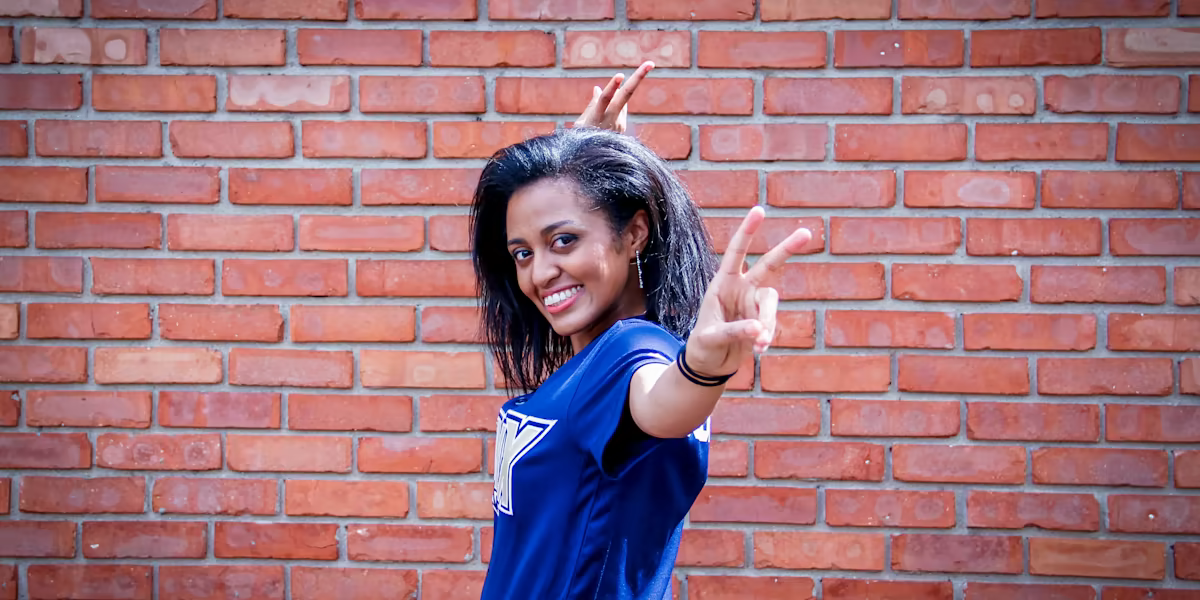
Carter is a skilled player with several top-four placements, multiple regional victories to her name, and top-two in the world with the character of her choice, Alisa. She’s also a role model for all the girls that may want to follow in her footsteps and become professional fighting games players. Red Bull’s article on her back in 2018 shines more light on the ultimate decision to sign her as a competitor for their esports team. The best part is that she’s not taking anything for granted.
Even after big wins, it’s back to the drawing board for her, back to the lab, more training. A staunch advocate for more opportunities in gaming for women and under-represented communities, she was recently featured in the Forbes 30 under 30 list.
By bringing more attention to the stories like these and giving a platform to players like Cuddle_Core, Red Bull is proving it is in it for more than short-term financial gains or exposure. This careful investment into the esports scene has afforded the company more goodwill than any other big brand name that has ever entered the FGC.
This is the case because every new venture requires understanding, and Red Bull didn’t crush down the door and start throwing money around. It carefully knocked first.
DashFight is an all-in-one fighting games hub, fully packed with guides, news, VODs, events, and rankings for games like Tekken 7, Street Fighter V, Super Smash Bros. Ultimate, Mortal Kombat 11, Dragon Ball FighterZ, Brawlhalla, and Guilty Gear -STRIVE-.

